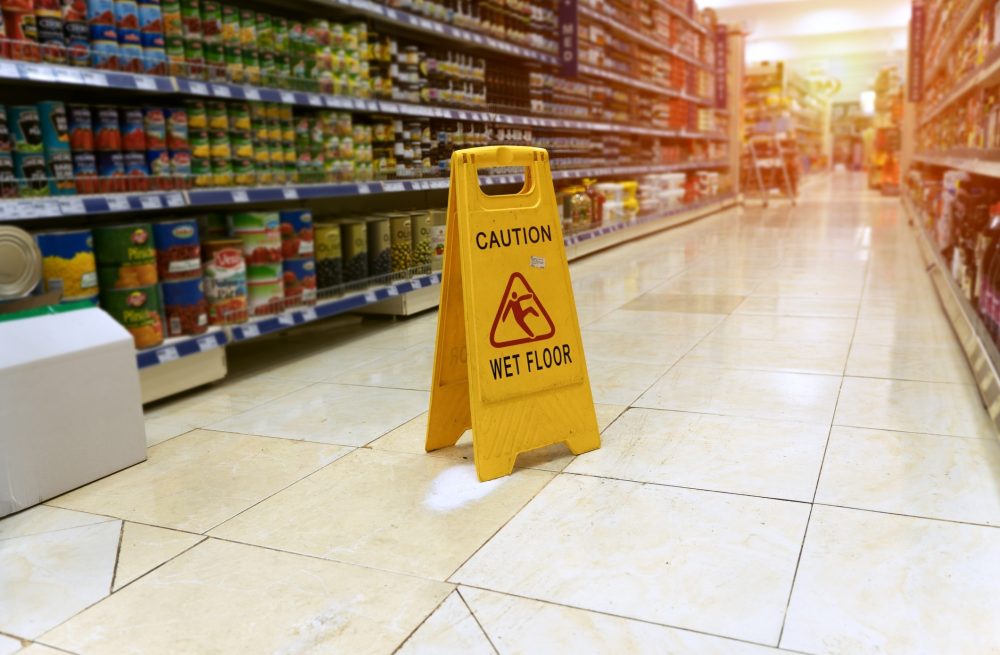Slip and fall accidents can happen anywhere and they can happen suddenly without warning, in a survey the general population, and you will likely get a split opinion on grocery stores. For some, the weekly trip is a chance to plan the week ahead, stock up on delicious snacks, and save money by preparing home meals instead of eating out. For others, it’s a hassle, a time-suck, and a guarantee that a week later, an unopened bag of spinach will hit the garbage can at home. What people usually do not worry about are grocery store accidents.
The layout of a grocery store and the concentration of employees at the registers or behind service counters means shoppers are often set loose in the aisles to contend with potential cart injuries and slip-and-falls. If a customer suffers a significant injury, the customer must prove not only that there was a dangerous condition, but also that the store was negligent in remedying the dangerous condition that caused the injury. This begs an important question; how does one prove that and who decides if it has been proven?
The NJ Appellate Court recently reviewed a case where a woman shopping in her local grocery store had a slip and fall accident on a viscous, clear liquid. Video surveillance revealed the spill had only been on the floor for about a minute prior to her accident. An earlier customer spilled the liquid from their cart without notice. Surveillance further showed an employee walked past the spilled liquid moments before the plaintiff’s fall. The manager on duty testified that the store’s policy for addressing and remedying spills meant that the employee must not have seen the spill. Otherwise, the logic goes, they would have followed store policy and cleaned the spill.
Generally, tort law dictates that a jury of peers should decide questions of fact in a trial. Whether the store was negligent in allowing the conditions precipitating the injury to occur is a question of fact. Typically, this analysis can be achieved by reviewing:
- Eyewitness testimony;
- Sworn statements from the employees on duty;
- Video footage;
- Photos taken at the scene of injury at the time of injury; and/or
- Examination of the actual substance or object that caused the injury for signs that the condition existed for a significant amount of time prior to the injury, such that an employee reasonably should have (or did!) seen the hazard but took no steps to fix it. (Imagine a sticky spill that has begun to harden at the edges.)
Here, the injured plaintiff made two arguments. First, that the way the store operated meant that it routinely exposed customers to a high chance of injury via slip and fall, and as such, the burden of even having to prove that the employee saw, but disregarded the spill, should be excused. Second, that the video footage raised a question of fact that a jury, and not the trial court judge, should decide.
The Appellate Court disagreed finding that the possible existence of self-service registers or other automated platforms in the store was not dangerous enough to relieve the Plaintiff of the burden of proving the employee saw the spill. The court found that for such relief to be granted the Plaintiff would have to allege that the self-service nature of the business was more extreme such as something very hands-off, like making customers bring and fill their own bottles of detergent. Not exactly what your standard Sunday shopping trip would entail.
However, it was not all bad news for the plaintiff. The Appellate Court agreed that it was improper for the trial court judge to unilaterally conclude that the store employee did not see the spill. The Court found this was a question of fact for a jury to decide and therefore remanded for a trial.

